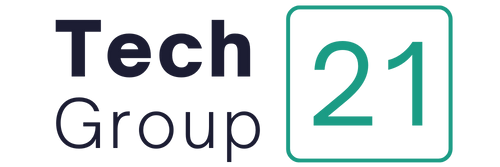Six months from now, you could be starting your first day as a software developer. No four-year degree, no prior experience – just a laptop, a ton of new skills, and a job offer in hand. This is the powerful promise of the coding bootcamp. But is it a realistic dream or just clever marketing?
The tech industry’s explosive growth has created a massive demand for developers, and bootcamps have emerged as a legitimate, fast-paced alternative to traditional education. We’ve all seen the success stories. But for anyone starting from zero, the big question remains: Is the six-month timeline achievable?
This guide will break down the “zero to developer” journey, exploring what it really takes to succeed. We’ll cover the bootcamp experience, the job hunt, and provide a realistic timeline to help you decide if this path is right for you.
The short answer is yes, landing a developer job within six months of starting a bootcamp is absolutely possible. However, it requires intense dedication, a strategic approach, and a clear understanding that the hardest work often begins after graduation.
The Anatomy of the 6-Month Timeline
Success in this accelerated timeframe isn’t about a single, three-month course. It’s about a dedicated, six-month transformation broken into distinct phases.
Month 0: The “Pre-Work” Phase (Before Day 1)
The clock starts before your bootcamp does. Your success and ability to keep up with the intense pace will be directly determined by the preparation you do now. The goal is to not be a “true zero” on day one.
- Complete the Pre-Work: Every reputable bootcamp assigns mandatory pre-work (usually basic HTML, CSS, and JavaScript). Complete it thoroughly.
- Go Beyond: Don’t stop there. Use free resources like freeCodeCamp, The Odin Project, or Codecademy to get comfortable with the fundamentals. Building a tiny, simple project on your own before you start will give you a massive advantage and a huge confidence boost.
Months 1-3: The Immersive Learning Phase (The Bootcamp Itself)
Get ready to drink from a firehose. The bootcamp experience is a full-time commitment, often demanding 40-60 hours per week. This isn’t just class time; it’s a whirlwind of lectures, hands-on projects, pair programming, and homework.
- Month 1: Mastering the Fundamentals. You’ll dive deep into core programming concepts, data structures, and how the web works. The pace is fast, and you’ll be coding every single day.
- Month 2: Learning a Framework. This is where you start building more complex, modern applications using a popular framework like React, Angular, or Vue. You’ll learn how to build interactive user interfaces and manage application state.
- Month 3: The Capstone Project. This is the centerpiece of your portfolio. You’ll spend the final weeks building a complete, full-stack application from scratch. This project is your proof to employers that you can not only code but can also think like an engineer and build a product.
The rise of the coding bootcamp online has made this immersive experience more accessible than ever, allowing you to learn from anywhere without the need to relocate.
Months 4-6: The Job Hunt Phase (The “Second” Bootcamp)
Here’s the reality check: graduation is the starting line, not the finish line. The job hunt is a full-time job in itself and requires just as much structure and discipline as the bootcamp.
This phase is a continuous loop of four key activities:
- Refine & Build: Your portfolio is never “done.” Polish your capstone project, deploy it online, and write a great README. Better yet, start a new, smaller project to show you are a self-motivated learner.
- Network & Apply: Quality over quantity is key. Target 5-10 relevant junior developer roles per day. But don’t just “spray and pray.” Connect with alumni, recruiters, and engineers at companies you admire on LinkedIn. A warm introduction is infinitely more powerful than a cold application.
- Study & Interview: This is non-negotiable. Dedicate several hours each day to practicing algorithms on platforms like LeetCode or HackerRank. Rehearse your answers to common behavioral questions. You must be prepared for the technical screen.
- Iterate & Improve: Treat every rejection as data. If you’re not getting interviews, fix your resume. If you’re failing technical screens, study more algorithms. If you’re getting to the final round but no offer, practice your behavioral interviews. Adjust your approach and go again.
What Separates Success from Struggle?

Is the six-month timeline guaranteed? No. Several factors will dramatically influence your success.
| Factor | Accelerates Your Timeline | Slows Your Timeline |
| Prior Experience | Having any related background (e.g., data analysis, design, technical project management). | Starting from absolute zero with no prior technical exposure. |
| The Bootcamp Itself | A top-tier program with strong career services and a robust alumni network. | A low-quality bootcamp with poor career support and no hiring partner connections. |
| Your Portfolio | 3-4 polished, deployed projects that solve a real problem and showcase clean code. | A single, buggy capstone project that isn’t deployed online. |
| Networking Effort | Actively connecting with people on LinkedIn, attending virtual meetups, and doing informational interviews. | Only applying through job boards and waiting for recruiters to respond. |
| Interview Preparation | Consistently practicing algorithms and rehearsing behavioral answers. | “Winging it” in technical interviews. |
| The Job Market | A strong economy with high demand for junior developers. | A downturn or tech recession with hiring freezes and layoffs. (An external factor to be aware of). |
The Verdict: It’s a Formula of Effort
So, can a coding bootcamp land you a job in six months?
Yes, it absolutely can. The three-month bootcamp followed by a three-month job search is a proven model for thousands of successful developers. However, it is not a guarantee. It is a direct result of intense effort, strategic preparation, and unwavering persistence.
The path from zero to developer in six months is not easy, but it is simple. It’s a formula of immersive learning plus a relentless job search. If you are prepared for the intensity and committed to the process, you won’t just be changing your skills, you’ll be changing your life.



